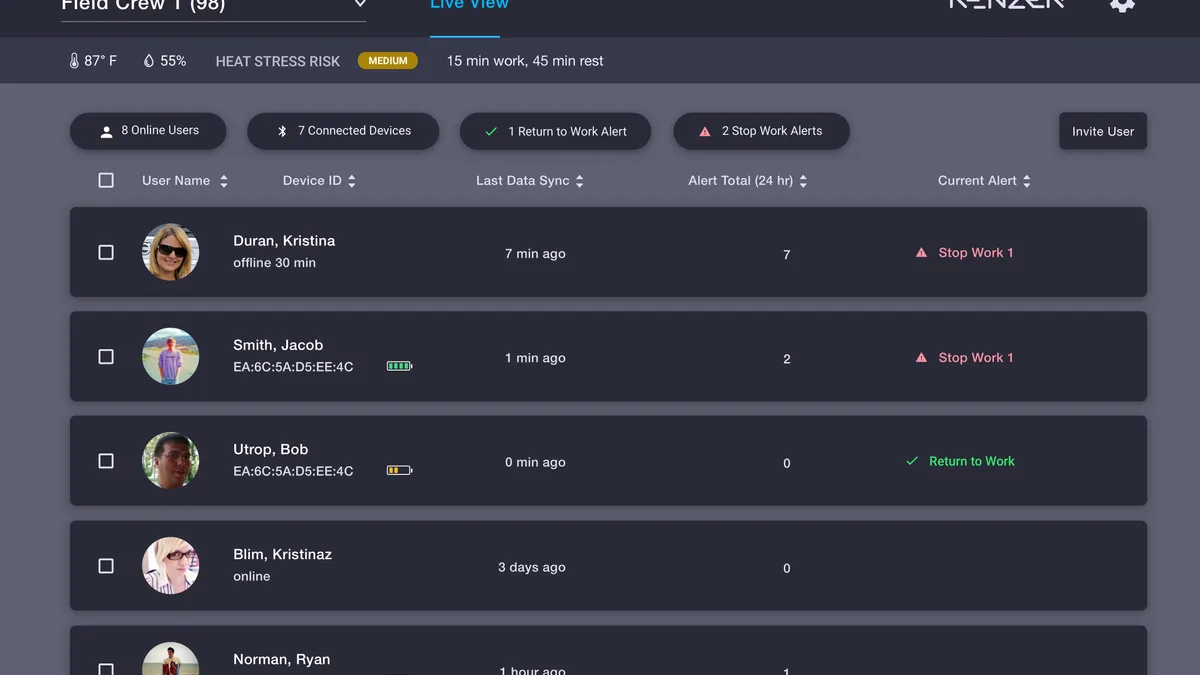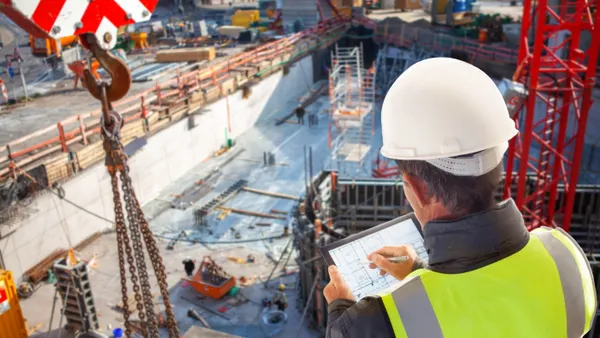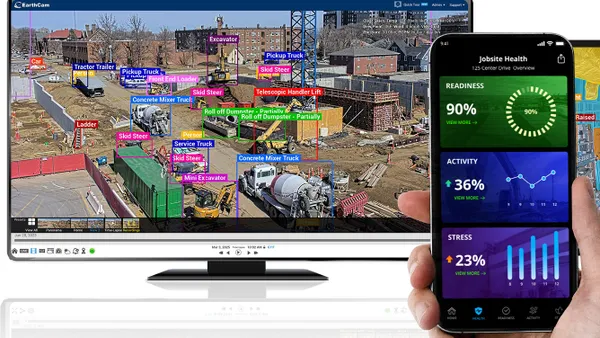Dive Brief:
- A new system from health monitoring firm Kenzen can help employees keep cool this summer when working outside. The company claims the Kenzen Patch, a black arm band that goes around the bicep and has a related mobile app, continuously monitors a worker’s body temperature to help avoid heat-related illnesses.
- The patch, according to Kenzen Chief Commercial Officer Heidi Lehmann, allows safety supervisors to see real-time metrics, allowing them to respond to a potential health threat before a worker becomes ill.
- Companies also can view anonymized data sets to identify changes that would help mitigate future issues caused by heat, such as increasing break times or more water stations. The patch is in limited release, but contractors can test the product now because it is available for sale in the fall.
Dive Insight:
During the hot summer months, construction workers are among those at the highest risk of heat exhaustion, according to OSHA, especially when working outdoors on roofing or roadway projects.
Using the patch system, workers can track and follow their own biometric data, including body temperature and heart rate, while safety supervisors see real-time data and alerts, Kenzen said.
Although not designed to specifically monitor a possible coronavirus-related infection, Lehmann said the sensor indicates when a worker’s body temperature is elevated. A safety manager can then use context to decide if the raised body temperature resulted from fever or from heat-related conditions.
Kenzen found construction workers would not necessarily heed their own warning signs if viewing data on their personal phones, whereas if a supervisor informed them their body temperature had risen they would be more likely to take a break, Lehmann said. In addition, if workers are put in charge of monitoring their own vitals through the app, they may not have their cell phones with them.
“A lot of times on construction sites the workers can carry phones in certain areas,” she said. “But in certain environments either it was disruptive to the workflow or they weren’t allowed to carry them.” This informed the decision to put the live information into supervisors' hands.
In related news, Boston-based Shawmut Design and Construction recently implemented Feevr, a device that uses artificial intelligence to detect elevated temperatures in groups of people to determine if any workers might have a fever without having to come into physical contact with the individual.
Other types of wearables are helping with jobsite safety including wearable technology that ensures workers maintain social distancing and Triax’s Spot-r clips that detect when a worker falls and contacts a supervisor for aid.














